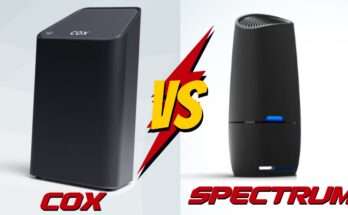No working WiFi or slow WiFi connectivity is the most frustrating thing you can encounter while using a Windows 10. it is known that most of the computing today relies on web connectivity so being cut off from the web can be super annoying! The slow internet connection can be an abrupt end to your productivity. If you’ve got a Windows 10 and you are looking for how to fix Windows 10 WiFi connection issues, then you are at the right place.
We have compiled a list of common WiFi connection issues on Windows 10 and how you can troubleshoot them with ease.
WiFi is Connected but there is no Internet Access
Many times Windows will tell you that you are connected to the internet and the connection is secure but you won’t be able to access the web. To fix Windows 10 WiFi problem you should be aware of the cause of connectivity issues. Usually, this issue is caused by either a faulty TCP/IP stack, IP address or DNS client resolver cache.
To solve this issue try running Window’s own Network Troubleshooting tool.
- Go to Settings
- Update & Security
- Troubleshoot
- Internet connections
This should get you your internet speed back, if not then you can enter these commands the command prompt. Hit enter after every command you’ll get your internet connection back.
- Netsh Winsock reset
- Ipconfig/release
- Netsh int IP reset
- Ipconfig/renew
- Inconfig/flushdns
Windows 10 Won’t Connect to WiFi
If you try to connect to a network and then you see a message that reads “Windows 10 can’t connect to this network” then your network adapter is probably at fault. The best way to fix this Windows 10 WiFi driver issues you need uninstall the network adapter’s driver and allow the window to reinstall it automatically.
Follow the steps to complete the process:
- Press Windows Key + X and click on device manager
- Right-click on Network adapter and choose “Uninstall”
- Restart your machine and Windows will reinstall the driver automatically
WiFi Doesn’t Have a Valid IP Configuration
If you see a prompt that reads “WiFi doesn’t have a valid IP configuration” if you’re wondering how to fix win 10 WiFi problem then follow the simple step! Use the same four commands we listed above in command prompt and you’ll be fine. If that doesn’t work then there are two further steps you can take to fix WiFi connection issue.
- Change the Network Name & Password: Some users have said that changing your network name and password can fix your problem.
- Set the WiFi Network Channel band: Routers can transmit their WiFi signals on different channels. If your router allows it you set it to auto. If there is no Auto setting then choose different channels to see if your problems go away.
How to Search for WiFi Password on Windows 10?
If you’ve got a brand new WiFi router, then we advise you to change your default name and password. It is a beneficial step if you don’t want your network Id to get hacked. Most people forget the password they have used for their network. You could reset your router to fix Windows 10 Connection problem. There is an easier solution as well you can find your windows password. Follow the easy steps below and you’ll find your WiFi password.
- Right-click on Network icon on the Taskbar
- Choose Open Network Internet settings
- In the new windows, Click on Change adapter settings
- Right-click on your WiFi connection and click on Status
- Click on Wireless properties
- Click on “Security”
- Mark the checkbox to “Show Characters”
Windows 10 WiFi Driver Issues
We’ve already explained how you can fix your Windows 10 WiFi drivers Issues. If that step doesn’t work then you can take additional measures to see if you really have WiFi driver issues on your windows. There are not many ways you can know how to fix win 10 WiFi problem but following these steps will definitely help you out.
- Right Click on the Start button
- Click on Device Manager
- Expand the Drop-Down menu below Network Adapters
- Select on Properties
- Click on Driver Tab
- Choose either of the two options “Update Driver” or “Roll Back Driver”
No WiFi Networks Available
If your Windows can’t find any WiFi networks even though your network is open then you can do some basic troubleshooting to understand the problem. Is the router turned on? Is your device within the range of the WiFi network?
If your device is in the range and your equipment is working properly, then you should try updating or reinstalling your device’s network adaptor driver. In the end, you can try changing the region of your WiFi adapter, it is very easy to do so, just follow these steps:
- Press Windows Key + R
- Type devgmt.msc in the run bar
- Right-click on the name of your network adapter
- Click on Properties
- Choose on “Advanced” Tab
- Highlight Country & region
- Choose the entry according to your location
Forgetting WiFi Network On Windows 10
Sometimes when your machine doesn’t connect to your old network and you need to forget your network to connect to it again. It is pretty easy to complete this process, follow the steps listed down below!
- Open the Start Menu
- Click on Settings
- Click on Network and Internet
- Choose WiFi from the menu
- Go to Manage known Networks
- Click on the name of the network you want to forget
- Click on “Forget Network’
When you try to connect to this network again you’ll have to type in your password as the first time.
Windows 10 keeps on Dropping the WiFi Connection
If you have been experiencing constant drops in the WiFi network then the first thing you should do is check if the problem is with your WiFi router. If your equipment is working perfectly then the WiFi connection issues could be caused by your network adapter’s power management settings.
You need to stop the permission that allows windows to turn off the adapter to save power. To complete the process you’ll need to return to Device Manager.
- Right-click on the Start menu
- Choose Device Manager from the list of options
- Expand the list below Network Adapter
- Choose your Network adapter
- Click on “properties” tab
- Click on the Power Management Tab
- Unmark the checkbox that allows the computer to turn off to save power
Setting Up Your Firewall
Sometimes your firewall doesn’t allow you to connect to a network. The reason could be that windows assumes the network is not secure. Your Windows in-built firewall either permits or blocks incoming & outgoing traffic to help protect you against harmful content. Sometimes your firewall can block the internet access for your whole computer.
If you are wondering how to fix win 10 WiFi problem then follow the simple steps we have listed below! The solution listed below works for Windows in-built firewall and any other third-party firewall.
- Open the start menu and type command prompt
- Select on the option run as administrator
- Type “netsh advfirewall set allprofiles state off” and hit enter
- Test whether the internet connection is working or not
Antivirus Not Letting You Connect To Internet
Just like your firewall, your Antivirus software can also cause some network connection issues. Open your Antivirus app and expand the panel on the left side. Choose “Virus and Threat protection” from the options. Temporarily disable the service and your internet will start running as smoothly as before.
Conclusion over Windows 10 WiFi Connection Issues
We hope that we covered all WiFi connectivity issues and helped you with the solution for your windows 10 WiFi limited access issue. You can fix any WiFi troubleshoot if you know where you have to look.




